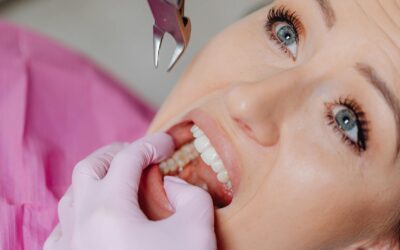Tooth infections might seem minor at first, but if left untreated, they can spiral into serious health complications. Recognizing the early signs of tooth infection spreading to body is critical to avoid life-threatening outcomes like sepsis or organ damage. According to the American Dental Association (ADA), untreated dental abscesses can lead to systemic infections that travel through the bloodstream. This article highlights the top 10 early indicators of a dental infection going beyond your mouth—knowledge that could save your health, or even your life.
Note: If you suspect a dental infection has spread, seek medical help immediately. Timely intervention can prevent hospitalization and long-term damage.
- 10 Early Signs of Tooth Infection Spreading to the Body
- How a Tooth Infection Becomes Life-Threatening
- When to See a Doctor or Dentist
- Complications of Untreated Tooth Infections
- Prevention: The Best Cure
- The Link Between Oral Health and General Health
- FAQs: Common Questions About Spreading Tooth Infections
- Final Thoughts
What Happens When a Tooth Infection Spreads?
A tooth infection (often due to cavities, gum disease, or trauma) can lead to an abscess—a pocket of pus caused by bacterial invasion. When bacteria escape from the infected area into your bloodstream or nearby tissues, the infection may spread to other parts of the body. This is known as a systemic infection, and it requires urgent care.
The body attempts to fight off the infection, but once the bacteria break past local defenses, they can move to vital organs such as the heart, brain, lungs, or bones. This is especially risky for individuals with weakened immune systems or underlying health issues.
10 Early Signs of Tooth Infection Spreading to the Body
1. Fever and Chills
An unexplained rise in body temperature, often accompanied by chills, is a red flag. Your immune system is reacting to the infection trying to invade your body. A persistent fever after dental pain is an urgent sign to seek medical attention.
2. Swelling Beyond the Jawline
If facial swelling extends down your neck or up near the eyes, it’s a sign the infection is spreading. This can block airways, compress blood vessels, and become dangerous quickly. Swelling that becomes firm to the touch may indicate cellulitis—a serious skin infection.
3. Fatigue and Weakness
Systemic infections strain your immune system, leading to ongoing fatigue, muscle weakness, and difficulty concentrating. These symptoms occur when your body diverts energy to fight off the infection.
Note: Persistent tiredness with facial or neck pain could signal an emergency dental issue.
4. Increased Heart Rate
A higher-than-normal pulse—especially when resting—can be a response to infection-related inflammation or fever. Tachycardia is one of the body’s early reactions to bacterial spread.
5. Shortness of Breath
If you’re experiencing breathing difficulties, this could indicate the infection has spread to your chest or is affecting your respiratory system. A swollen throat or pressure on the lungs can impair airflow.
6. Swollen Lymph Nodes
Tender, enlarged lymph nodes under the jaw, in the neck, or even under the arms suggest the body is fighting off a widespread infection. Lymph nodes act as filters, and swelling means they’re under stress.
7. Headache or Dizziness
A spreading infection can affect your central nervous system, causing tension headaches, dizziness, or confusion. If the infection reaches the brain, it could cause a life-threatening condition like meningitis or brain abscess.
8. Metallic or Foul Taste
An unpleasant taste in your mouth that persists may indicate pus or infection draining from the abscessed tooth. This symptom may be accompanied by bad breath or a bitter aftertaste.
9. Nausea or Vomiting
Gastrointestinal symptoms—like feeling sick or vomiting—can occur when bacteria enter the bloodstream and impact organ function. Nausea is often linked with systemic toxicity or infection-induced inflammation.
10. Rapid Breathing or Hyperventilation
This symptom is commonly associated with sepsis—a life-threatening body-wide infection that can stem from an untreated dental abscess. Respiratory rate is often the first vital sign to change in sepsis.
How a Tooth Infection Becomes Life-Threatening
Tooth infections don’t remain confined to your mouth. Once bacteria reach the bloodstream, they can travel rapidly to major organs:
- Heart: May cause endocarditis (infection of the heart’s inner lining).
- Brain: May result in meningitis or brain abscess.
- Lungs: May lead to pneumonia or lung abscesses.
- Bones: Osteomyelitis, a painful and difficult-to-treat bone infection.
When these conditions occur, they can trigger sepsis—a medical emergency that affects over 1.7 million adults annually in the U.S., according to the CDC.
Remember: Sepsis from dental infections can progress rapidly—hours matter.
When to See a Doctor or Dentist
If you notice any combination of the symptoms above—especially fever, swelling, shortness of breath, or mental confusion—seek emergency care. Do not wait for symptoms to subside on their own.
Emergency symptoms include:
- Difficulty breathing or swallowing
- Severe facial or neck swelling
- High fever over 101°F (38.3°C)
- Blurred vision or altered mental status
Complications of Untreated Tooth Infections
If ignored, a simple dental issue can escalate into:
- Sepsis – Life-threatening response to infection
- Brain Abscess – Pus formation in the brain due to infection
- Ludwig’s Angina – A fast-spreading neck infection causing breathing difficulty
- Endocarditis – Heart lining infection common in high-risk patients
- Osteomyelitis – Bone inflammation that may require surgery
- Respiratory Obstruction – Swelling that blocks airways
These complications often require hospitalization, IV antibiotics, or even surgery.
Prevention: The Best Cure
Preventing dental infections from spreading begins with consistent oral care and regular dental visits. Here’s what you can do:
- Brush and floss daily to prevent plaque buildup
- Avoid sugary foods that contribute to decay
- Visit your dentist twice a year for cleanings and exams
- Treat dental issues early—don’t ignore pain or sensitivity
- Use fluoride products for stronger enamel
Note: People with diabetes, autoimmune diseases, or undergoing chemotherapy are at higher risk of systemic infections from oral bacteria.
The Link Between Oral Health and General Health
Your oral cavity is the gateway to your body. More research—like studies published in PubMed—has shown strong links between oral infections and systemic diseases such as heart disease, diabetes, and even dementia.
Inflamed gums or abscessed teeth release inflammatory mediators into the bloodstream. Over time, this chronic inflammation may increase your risk of systemic health problems.
Maintaining oral health isn’t just about preserving your teeth—it’s about protecting your body.
FAQs: Common Questions About Spreading Tooth Infections
How long does it take for a tooth infection to spread to the body?
It varies, but a severe abscess can spread within a few days if left untreated. Early dental care is crucial.
Can a tooth infection go away without antibiotics?
No. A dental abscess typically requires professional treatment, which may include antibiotics and drainage.
What are the first signs of sepsis from a tooth infection?
Look for fever, rapid heartbeat, confusion, shortness of breath, and chills. These need emergency care.
Will I need surgery if my tooth infection spreads?
Possibly. Advanced infections may require surgical drainage or even tooth extraction and hospitalization.
How can I tell the difference between a normal toothache and a spreading infection?
Normal toothaches don’t usually come with fever, swelling beyond the jaw, or fatigue. If you have multiple systemic symptoms, seek immediate help.
Final Thoughts
Your mouth is not separate from your body—oral health is systemic health. Recognizing the early signs of tooth infection spreading to body can be the difference between recovery and serious illness.
Many of the symptoms of a spreading tooth infection are easy to miss or dismiss. However, combining dental pain with general symptoms like fatigue, fever, or shortness of breath is a critical warning.
If you’re experiencing any of the issues mentioned above, don’t delay. Early diagnosis and treatment can stop the infection in its tracks, protect your vital organs, and potentially save your life.
Information has been referenced and adapted from trusted sources including Mayo Clinic, WebMD, and the American Dental Association.
Disclaimer: The content provided in this article is for educational and informational purposes only. It does not substitute professional medical advice, diagnosis, or treatment. For guidance specific to your dental condition or recovery, please consult your dentist, oral surgeon, or licensed healthcare provider.


















0 Comments